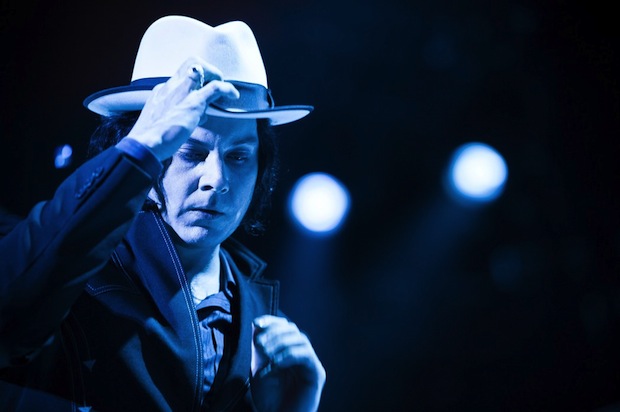Junette Reyes/Editor-in-Chief
When analyzing Jack White’s music, one can’t really compare his work to any other musician’s work besides his own, as it usually sounds unlike anything that has ever been done before. He might have his influences from which he draws inspiration, but Jack White’s music always sounds like nothing else but Jack White’s music, ranging from every band he has ever been in (The Upholsterers, The White Stripes, The Raconteurs and The Dead Weather) to his solo material. This is mainly due to his unmistakable guitar riffs, developed from the Detroit native’s use of guitar pedals to achieve a raw and crunchy manipulation of pitch.
This sound was generously sprinkled throughout his solo debut in the 2012 release titled “Blunderbuss.” However, White has now seemed to have somewhat lost his Detroit attitude in his sophomore release titled “Lazaretto,” making me think that he has probably spent too much time in Nashville where the headquarters of his record label, Third Man Records, is located.
The reason I say this is the album seems unusually more on the folk rock side than any of his previous releases. White is experienced with this style of music, given his contribution to the soundtrack of the 2003 film titled “Cold Mountain” as well as several songs on “Blunderbuss,” including the title track. Although the experimentation with instrumentation in this style is similar to “Blunderbuss,” such as the use of harps, fiddles, mandolins and upright bass, White seems to have complicated it further by presenting it in the form of Americana, which is characterized by the contemporary incorporation of country, folk, rock and roll and blues. This isn’t too different as was done in the previous album; however, these elements are thoughtlessly combined all in one.
By this I mean White exhausted whatever charm might come from Americana by cramming it all into the songs as opposed to sparingly throughout the album. Something he was able to musically achieve in “Blunderbuss” but now failed to fully replicate by giving us practically an extension of that, but all jumbled up.
For example, the first single to be released, titled similarly to the album, starts off in White’s familiar fashion with a riff in a similar style to his work with The Dead Weather. It then breaks down into a fiddler’s solo towards the end of the track. Another single, “Just One Drink,” is almost reminiscent of a White Stripes-era track, except it introduces a ragtime piano, the kind you’d probably hear in a saloon; and that same fiddler as before. “That Black Bat Licorice” introduces a sort of ska feel to the album with the same ragtime piano and fiddler on top of it all.
It can probably be safe to say that this is White’s most ambitious release to date, given the cramming of multiple styles and genres into one album. Not only that, but the artistry behind all of the work done on the Ultra LP release of “Lazaretto” on vinyl, including hidden tracks beneath the center label, locked grooves, starting from the inside out on Side A and a hand-etched hologram, to name a few treats for the vinyl lovers.
Unfortunately, whatever was hoped to be achieved by combining all of these styles and genres is overshadowed by an incomprehensible execution. I feel that White focused too much on being the Willy Wonka of vinyl instead of producing quality work to accompany the experience presented in the vinyl release.
Notable tracks include “Three Women,” “Lazaretto,” “High Ball Stepper,” “Just One Drink,” and “That Black Bat Licorice.”
Final verdict: 3.5/5
-junette.reyes@fiusm.com






Be the first to comment on "Jack White’s ‘Lazaretto’ breaks genre lines"